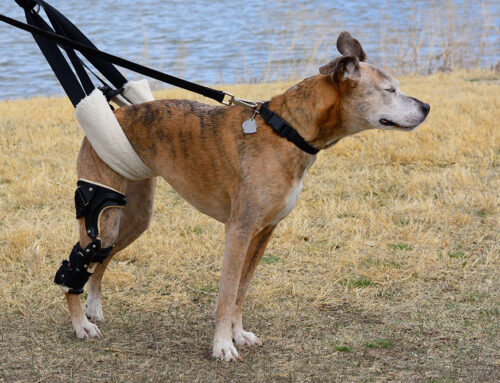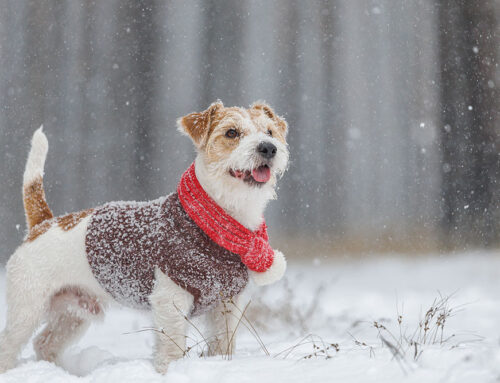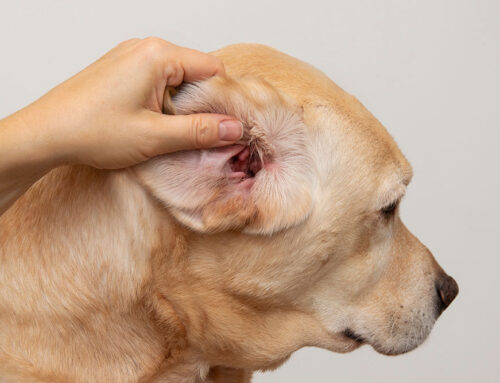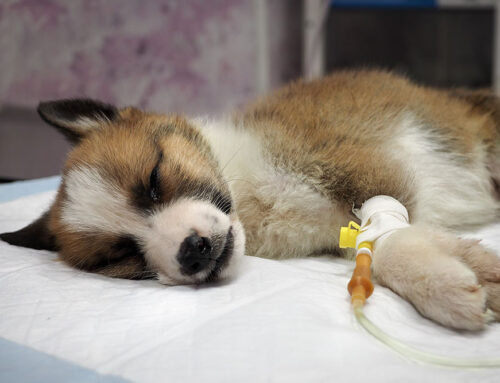Is That Cough Serious? How to Decode Your Pet’s Breathing
If your pet starts coughing, wheezing, or sneezing out of nowhere, it can leave you both confused and concerned. One moment, they’re lounging peacefully—and the next, they’re making a noise that sends you to Google at 2 a.m. At Animal Medical Center of Marquette, we know how concerning respiratory symptoms can be. The good news? Not every sound signals an emergency- but some absolutely do. Here’s how to tell the difference—and when to reach out for help.
What’s Normal and What’s Not?
Breathing should be smooth, quiet, and regular. Occasional sneezing or a soft snore? Usually nothing to worry about. But if you notice coughing that won’t quit, sneezing that seems excessive, or a wheeze that’s becoming a soundtrack, it’s time to pay closer attention. Persistent or unusual respiratory sounds are often your pet’s way of saying, “Hey, something’s not right.”
To help you identify the emergency, read AAHA’s comprehensive guide on Respiratory Distress in Pets.
Coughing: More Than a Simple Ticklish Throat
A cough is a reflex that helps clear the airways—but frequent coughing deserves investigation. Common causes include:
- Infections, like kennel cough in dogs
- Allergies to dust, pollen, or other irritants
- Foreign bodies stuck in the throat
- Heart disease, especially heartworm
- Collapsed trachea in dogs, often seen in smaller breeds
When to Act
Coughs that sound dry, harsh, or like a goose honk should not be ignored—especially if your pet seems tired, has trouble breathing, or avoids activity.
How We Help: At our clinic, we may recommend chest X-rays, bloodwork, or a tracheal wash. Treatment depends on the cause and may include medications, rest, or surgery in more advanced cases.
Sneezing: Cute… Until It Isn’t
Sneezing helps clear out irritants. But when it becomes frequent or is paired with nasal discharge, it could mean:
- Allergies to environmental triggers
- Feline upper respiratory infections
- Dental disease or nasal tumors, which can irritate the sinuses
What to Watch
- Discharge (especially if it’s thick, yellow, or bloody)
- Facial swelling
- Lethargy or decreased appetite
How We Diagnose: We may perform a nasal exam, dental evaluation, or advanced imaging such as rhinoscopy to get to the root of the problem.
Wheezing: The Whistle That Shouldn’t Be There
Wheezing happens when air struggles to move through narrowed airways. It’s often heard in:
- Asthmatic cats
- Chronic bronchitis
- Obstructions, like tumors or inhaled objects
Red Flags
Labored breathing, blue gums, or open-mouth breathing mean you should seek immediate veterinary care.
In-Clinic Care: We may perform radiographs, listen to lung sounds, or use bronchoscopy. Treatment can include inhalers, steroids, or bronchodilators.
Reverse Sneezing: Strange, but Often Harmless
This one tends to catch pet owners off guard. Your dog suddenly stops, stretches their neck, and starts snorting loudly—cue panic.
Common Triggers
- Irritation in the throat or nasal passages
- Post-nasal drip
- Excitement or pulling on the leash
What You Can Do
Gently massaging your pet’s throat or briefly covering their nostrils can help them reset. If episodes become frequent, we’ll check for underlying issues.
Snoring: Not Just a Sleep Quirk
Some snoring is expected—especially in flat-faced breeds like pugs and bulldogs. But new or worsening snoring may point to:
- Obesity, which can narrow airways
- Nasal congestion, infections, or obstructions
- Soft palate elongation or other anatomical issues
When It’s a Problem
If snoring is loud, frequent, or paired with restless sleep or gasping sounds, let us know.
Solutions May Include: Weight management, allergy treatment, or in some cases, surgery.
Could Allergies Be to Blame?
Allergies are a common thread across many respiratory symptoms. From seasonal pollen to indoor dust mites, the triggers can vary widely. Learn more with Allergy Tips for Small Animals.
Allergy Management Tips
- Use air purifiers and wash bedding regularly
- Switch to hypoallergenic or limited-ingredient diets
- Regular baths with gentle shampoos can help remove allergens from the skin
The Heart-Lung Connection
Respiratory symptoms can sometimes point to heart problems, especially coughing related to fluid in the lungs. Conditions like heartworm and congestive heart failure may first show up through breathing issues.
Prevention Matters
Routine check-ups and year-round preventives are crucial. See the full Canine Preventive Guidelines for tips on staying ahead of issues.
When to Call the Vet
| Symptom | Act Immediately? |
| Occasional sneeze or snore | No, monitor at home |
| Persistent cough or wheeze | Yes, schedule an exam |
| Blue gums or open-mouth breathing | Yes, seek emergency care |
| Reverse sneezing | Monitor, call if frequent |
| Facial swelling or nasal discharge | Yes, especially if paired with lethargy |
We’re Here for Every Breath
At Animal Medical Center of Marquette, we’re committed to helping you understand what your pet’s sounds are trying to tell you. If you notice new or worsening respiratory signs, don’t wait. Schedule an appointment or explore our full range of services. We’ll listen carefully—to both you and your pet—and work together to get them breathing easy again.











Leave A Comment